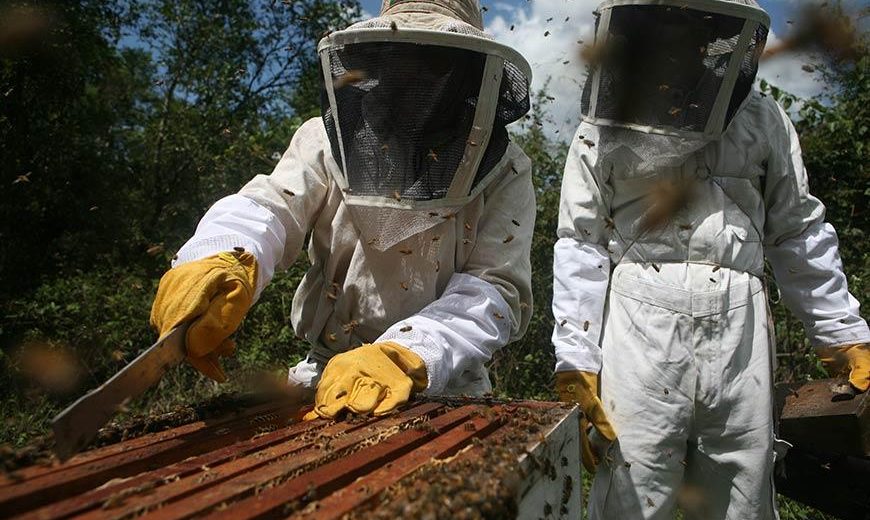Honey
Honey is a favourite natural sweetener in many cultures. But how can we make the future sweeter for beekeepers and their honeybees?

Image © Sean Hawkey
Bees pollinate so many of the plants we rely on for food. But the widespread use of pesticides is threatening bee populations, and raising serious concerns around future food security – Small-scale beekeepers – the type who produce Fairtrade honey – can play a key role in helping bees to survive and thrive. And conscious shoppers can support these producers, who also face challenges.
Choosing Fairtrade honey makes a difference
Beekeepers in developing countries often live in remote areas, which raises their transportation costs and limits the number of potential buyers they can negotiate with. At the same time they often lack good access to information regarding seasonal and regional honey prices. This puts them in a weak negotiation positon, which can result in them selling their product at a fraction of its real value.
Climate change is also a challenge. Unpredictable and extreme weather patterns make it difficult for beekeepers and their honeybees to determine accurate harvesting and breeding cycles. Sudden temperature shifts can drastically reduce bee populations and honey yields.
Stringent health and quality requirements in potential export markets can create barriers to entry – many rural beekeepers lack the information and equipment to comply with these.
At the same time, counterfeit honey is an increasing problem: fake or adulterated goods of low quality are passed off as pure or single-origin honey, driving down prices for honest producers.
Fairtrade offers beekeepers a number of ways to confront these challenges and grow their businesses.
Many Fairtrade beekeepers are also farmers – the bees they keep help to pollinate crops which they can sell and subsist on. Fairtrade works with beekeepers to establish surroundings in which bees can flourish, for example by advising them on bee-friendly cultivation methods. Many beekeepers have also used the Fairtrade Premium to switch to organic cultivation.
Given the critical role of bees in pollinating plants, their future will affect humanity’s prospects. Working with beekeepers to maintain stable bee populations is in everyone’s interests, and choosing Fairtrade honey is one way you can contribute. Did we mention it’s also delicious?
Looking for Fairtrade Products?
Fairtrade products are widely available. The blue countries and territories on the map below have Fairtrade organizations that promote Fairtrade products. Their websites often include a product finder to show you the full variety of Fairtrade products near you. Even if there isn't a Fairtrade organization where you live, Fairtrade products may still be available – look for our familiar marks on products!